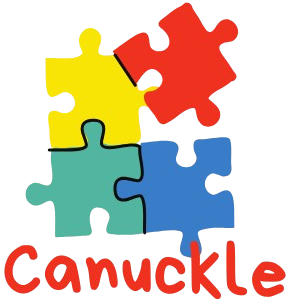
Introduction
In today’s fast-paced digital landscape, having a fast-loading and high-performing WordPress website is not just a luxury—it’s a necessity. For website owners aiming to enhance their site’s speed and reliability, leveraging CDNs in WordPress Geektech.uk is a game-changing strategy. This guide will provide an in-depth understanding of what CDNs are, their benefits, and how to implement them effectively on your WordPress site.
What are CDNs in WordPress?
A Content Delivery Network (CDN) is a system of distributed servers that deliver web content to users based on their geographic location. For WordPress websites, CDNs cache static files—like images, CSS, JavaScript, and videos—on multiple servers around the globe. This ensures that users receive content from the server closest to their location, significantly improving loading speed.
At Geektech.uk, we emphasize the importance of CDNs in optimizing WordPress sites for better user experiences and SEO rankings.
How Do CDNs Work in WordPress Geektech.uk?
- Caching Static Assets
- When a user visits a WordPress website, the CDN caches static content, such as stylesheets, scripts, and images, on its servers.
- These cached files are delivered from the nearest server, reducing the time it takes to load a page.
- Geographic Distribution
- CDNs in WordPress are equipped with Points of Presence (PoPs) worldwide. These servers ensure quick content delivery regardless of the user’s location.
- Minimized Latency
- By reducing the physical distance between users and servers, CDNs improve load times and reduce latency, creating a smoother browsing experience.
Why Use CDNs in WordPress Geektech.uk?
Here are the primary reasons why implementing CDNs in your WordPress site is essential:
- Enhanced Website Speed
- Speed is critical for user retention and search engine rankings. CDNs ensure that your content loads faster, even during traffic surges.
- Improved SEO
- Faster websites are favored by Google. CDNs in WordPress Geektech.uk can boost your site’s SEO performance, ensuring higher rankings on search engine results pages (SERPs).
- Global Reach
- For businesses with international audiences, CDNs provide a seamless browsing experience by delivering content from the nearest server.
- Reduced Server Load
- CDNs distribute requests across multiple servers, easing the load on your primary hosting server and reducing downtime risks.
- Enhanced Security
- Many CDNs offer additional layers of security, such as DDoS protection, ensuring your WordPress site remains safe from malicious attacks.
Top CDNs for WordPress Geektech.uk
When considering CDNs for your WordPress site, here are some top options to explore:
- Cloudflare
- Cloudflare is a popular choice due to its free plan and robust features, including DDoS protection and analytics.
- StackPath
- With its user-friendly dashboard and affordable pricing, StackPath is ideal for small to medium-sized websites.
- KeyCDN
- A cost-effective solution, KeyCDN offers powerful features like real-time analytics and two-factor authentication.
- Amazon CloudFront
- Backed by AWS infrastructure, Amazon CloudFront is an excellent choice for larger enterprises requiring advanced functionality.
- BunnyCDN
- Known for its ease of use and competitive pricing, BunnyCDN is a great option for WordPress site owners.
How to Implement CDNs in WordPress Geektech.uk
Setting up a CDN for your WordPress site is a straightforward process. Follow these steps:
1. Choose the Right CDN Provider
- Select a CDN provider based on your budget, site size, and geographic target audience.
2. Integrate the CDN with WordPress
- Many CDN providers offer plugins for seamless integration. For example, Cloudflare has a dedicated WordPress plugin.
3. Update DNS Settings
- Point your DNS settings to the CDN provider to route traffic through their servers.
4. Test Your Website
- Use tools like Google PageSpeed Insights or GTmetrix to analyze your website’s speed and ensure the CDN is working effectively.
5. Optimize Cache Settings
- Customize cache settings to balance speed and data accuracy, ensuring your visitors always see updated content.
Common Challenges with CDNs in WordPress Geektech.uk
While CDNs offer numerous benefits, there can be challenges during implementation:
- Configuration Issues
- Incorrect settings can lead to performance issues or downtime.
- Increased Costs
- Some CDN services may be expensive for small websites.
- Compatibility Problems
- Ensure your WordPress theme and plugins are compatible with the chosen CDN.
To address these challenges, Geektech.uk provides expert guidance, ensuring seamless CDN integration for WordPress sites.
FAQs about CDNs in WordPress Geektech.uk
1. What is the primary purpose of a CDN in WordPress?
The primary purpose of a CDN is to improve website speed and performance by delivering cached content from servers closer to the user.
2. Are CDNs necessary for all WordPress sites?
While not mandatory, CDNs are highly beneficial for websites with high traffic, global audiences, or performance concerns.
3. Can I use a free CDN for my WordPress site?
Yes, services like Cloudflare offer free plans with basic features suitable for small to medium-sized websites.
4. Will a CDN affect my WordPress website’s SEO?
Yes, positively. Faster loading times and improved performance can enhance your site’s SEO rankings.
5. How do I monitor the performance of a CDN?
Most CDN providers offer analytics dashboards. Additionally, tools like GTmetrix or Pingdom can help you track performance metrics.
Conclusion
Implementing CDNs in WordPress Geektech.uk is a proven strategy to enhance your site’s speed, reliability, and user experience. Whether you’re running a personal blog or a large e-commerce store, CDNs can significantly improve your website’s performance and SEO rankings. By choosing the right provider and integrating it effectively, you can ensure your WordPress site remains fast, secure, and accessible to users worldwide.
For more insights and professional assistance with CDN integration, visit Geektech.uk and take your WordPress website to the next level!
For more Information please visit my website: Canuckle.






